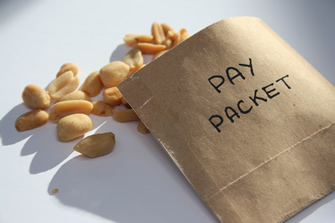FREE Law Review Course – Tort Worries?

Update (Nov. 22) – This contest is now over. But you can still get a low-cost license over at Law Study Systems.
With fall breaks under way or over, law school final exams are just around the corner. AAAHHH!!!
Just kidding. There’s no reason to panic. There are lots of great tools to help you ace your exams.
Law Study Systems is definitely one to check out. They have online review courses for Contracts, Torts, and Criminal Law. And you can win a free pass to their Torts course!!
All you have to do is post a comment on this article that answers the following question. I will pick a random comment from the post, and notify that person that he/she has won. The winner will receive instructions to register for the FREE Torts Essentials course (a $30 value!).
In your Torts studies, what topic seems the hardest to understand or makes you the most nervous?
I’ll go first, to break the ice. 🙂 Since I just took the Virginia bar exam, I definitely spent some time studying torts. Negligence makes me nervous. It’s a slippery ball of snot!
Now it’s your turn. If you’d like to win a free Torts Essentials course from Law Study Systems, post a comment below!
If you have a blog, you can review Law Study Systems and automatically win a free license to ALL THREE essentials courses.
Get more legal tips
|
See also... |
Photo Law – Your Right to Take Pictures in Public

You have a camera. But do you know your rights when it comes to public photography? You’ll learn them here.
Public photography is wide open
That’s the general rule. When you’re on public property (a street, sidewalk, city park, etc) you can take pictures of what you see. This means that you can also photograph private property as long as you’re not trespassing to get the shot.
Unfortunately, life is never that simple. There are a couple exceptions to the rule and other details you need to know.
Does the photo subject expect privacy?
Even on public property, you can’t photograph somebody who has a “reasonable expectation of privacy.” Basically, that means you can’t snap shots of people in the bathroom, a dressing room, or similar places. Ask yourself: “Would the average person expect privacy?” If so, don’t take a photo.
Along the same lines, don’t sneak photographs of people from bizarre angles. In essence, you can’t go around taking “up skirt” photographs. Even if you’re on the public sidewalk.
Is it a question of national security?
It was news to me, but military bases and nuclear facilities can restrict photographs – even from the outside area. Even if you’re not trespassing onto government land, taking pictures of these installations could be illegal.
Don’t even try. We’re not talking misdemeanor illegal. You might be shipped off and never seen again. Yep, crazy illegal!
Stand your ground, politely
If your public photo opp passed these three stages, you’re probably safe to shoot some pictures. Since there are millions of scenarios in which you could be photographing, there’s no way anyone can tell you for sure, ahead of time.
But if someone does confront you about your photography, you can probably win by standing your ground. Bert P. Krages II has some great questions for you to ask, if confronted. Remember to be polite!
- What is the person’s name?
- Who is their employer?
- Are you free to leave? If not, how do they intend to stop you if you decide to leave? What legal basis do they assert for the detention?
- Likewise, if they demand your film, what legal basis do they assert for the confiscation?
I’m not encouraging you to break the law, but I also hate seeing people cower when someone confiscates their camera. Private parties cannot take your personal property without a court order. And unless a police officer is arresting you, he cannot take your property either.
Other resources
The Photographer’s Right – This is Bert’s printable guide on U.S. public photography law. It’s very thorough, but still readable. I’d say it’s a must-have for any budding photographer.
Photo Permit – A great site on photography law, “about keeping photographers out of trouble, and supporting them when trouble looms.”
The Reporters Committee for Freedom of the Press – Their name says it all. If you’re a journalist (or blogger?), these guys are your backup.
Any questions?
I’m sure that whirlwind tour of public photo law might have raised some questions. I’ll do my best to tackle them. Just post a comment, and we’ll talk!
Get more legal tips
|
See also... |
About Andrew – My Favorite Charity

Regular readers know that I have my dream job working for a terrific non-profit organization. Hopefully, in a couple weeks I’ll be a Virginia licensed attorney.
Thanks to a cool competition at ProBlogger, I might be able to win $1,000 for this great non-profit. At the same time, I can explain a bit to you about our mission and my job.
American Life League’s mission
In short, American Life League works to save babies from abortion. With God’s help, someday we will establish personhood for preborn babies and end this American Holocaust.
ALL is one of the few pro-life groups that is totally committed to the babies, without exception. There is never an excuse or a justification for abortion.
We are a 501(c)(3) non-profit organization, and we work primarily by educational means. We have a great youth outreach program. We also publish an informative magazine.
My duties
I work in our department that focuses exclusively on Planned Parenthood. There are so many reasons to close Planned Parenthood that I won’t go into them here. I’ll just say that it’s the nation’s largest abortion chain.
As the (future) staff attorney at ALL, my job is to head up our legal fight against Planned Parenthood. This entails a lot of research, reading, and analyzing different issues.
I’m also networking with pro-life attorneys around the country. This has been probably the most enjoyable part of my job.
I have other duties that are constantly evolving, but this is the core part of my job. As the only almost-attorney in the building, a lot of different issues and questions hit my inbox.
Support us
If you’re interested in American Life League’s work, we would love your support. You can find out more about us and ways you can help at the American Life League website. Facebook users can join our official Cause.
Get more legal tips
|
See also... |
Cell Phone Laws – Your Guide

Have you gotten a ticket for using your cell phone while driving? In some states, cell phone laws require a hands-free device when talking and driving. This educational post should help make these cell phone laws clear.
No federal cell phone laws
Let’s rephrase that – there are no federal cell phone driving laws. The U.S. federal government has not (yet) regulated this area of your life. It wouldn’t be surprising to see federal cell phone laws in the next few years.
But there are still laws to know. States and municipalities have passed cell phone laws. That’s what the rest of this post covers.
State cell phone laws
The states have approached cell phone driving laws in several different ways. Before looking at specific states, we’ll see those approaches:
- Complete ban – Several states have enacted cell phone laws that prohibit hand-held use while driving.
- Specific situations – Other jurisdictions have restricted cell phone use in specific situations or places.
- Novices – A number of states enacted cell phone laws for young drivers.
- Bus drivers – Quite a few states completely ban cell phone use for school bus drivers when they have passengers on board.
- Distracted driving – Many states treat cell phone use as a type of distracted or dangerous driving. Even without specific cell phone laws, you still have to watch your driving.
- Text bans – The Washington cell phone law now bans text messaging while driving. Other states are likely to follow this lead.
- Local control – Some states enable local governments to pass cell phone laws, while other states completely prohibit local laws on cell phones.
Additional cell phone resources
Fortunately, there are several good online resources about cellular phone laws. It’s a pretty hot topic around the internet, especially regarding the California cell phone law.
Insurance Institute for Highway Safety – cell phone law chart
Governors Highway Safety Association – cell phone driving laws
Business Week – cell phone laws (a bit out-of-date)
Any questions?
You definitely need to do your homework on this issue. Be sure you know your cell phone laws while driving. You don’t want to be caught breaking cell phone traffic laws, just like you don’t want to get cell phone radiation. 😉
If you have any questions about this, post a comment below. I’ll do my best to answer your questions.
Get more legal tips
|
See also... |
Win Great Prizes From ProBlogger!
If you’re a blogger and you haven’t heard of Darren, the ProBlogger, you must be hiding under a rock. If you don’t blog, you can still learn a lot from Darren.
ProBlogger is having a $54,000 birthday bash. Yep, over the next few days, Darren is giving away $54,000 worth of prizes.
One of the cool prizes today is a set of two 20″ LG USB monitors. As of this post writing, there are already over 230 entries. But that’s still a pretty good chance of winning!
And now, back to our regular programming…
Get more legal tips
|
See also... |
Month in Review – September

Yeah, I dropped the ball on the July and August monthly reviews. But now that life is a little more sane, I’m going to get back to it.
Thanks to your readership, September was our biggest month yet!! Legal Andrew saw 16,425 visits. I’m darn proud of that number, but now I have to break 20,000!
I was a little sluggish with posting this month. I only wrote 10 posts, but I hope that content was useful to you.
Popular posts
1. The top post for September (actually, since I published it) is Lunch, Break, and Hour Laws You Should Know. It’s definitely a popular post, as are my other posts on labor law.
2. My post on Google Docs’ security did pretty well, thanks to Stumbles from lots of you great readers. Yeah, it was a little alarmist, but I wanted to bring the issue to the foreground.
3. Finally, people love Easter eggs. I guess that’s why they like my post on Google easter eggs.
Subscribe for easy reading
To make sure you don’t miss a post, there are several easy ways to subscribe to Legal Andrew:
Contact me
If you need anything or just want to chat, feel free to contact me. You can post a comment to any post here on the blog, or you can drop me a line. Also, feel free to IM me. The Contact page shows which networks I’m on.
Get more legal tips
|
See also... |
Minimum Work Shifts – Reporting Pay Laws

I love it when readers ask questions. I’m not an expert, but I try to provide the best answers I can. This article covers a common question I receive.
When you show up for your regular shift, but get sent home early, is there a minimum number of hours your employer must pay?
In short, the answer is most likely no. But there might be a state law that provides some relief.
Reporting pay
The typical legal term for this type of payment is “reporting pay.” Sometimes it is also called “show up pay.”
Basically, some employers have to pay their employees a minimum number of hours when the employee shows up for work but is sent home early. The typical reporting pay statute requires around 3-4 hours of work for a shift. If you work the minimum number of hours during a shift, reporting pay is not an issue. But if your employer sends you home after only 1 or 2 hours, he must give you “show up pay” for another couple of hours.
No federal reporting pay
To complicate this subject even further, federal law has no reporting pay requirements. If you are entitled to reporting pay, it will be based on a state law or maybe a local ordinance.
For many employees, this means you’re out of luck. From a federal standpoint, minimum working shifts is just not an issue of concern. But as we’re about to see, some states require reporting pay.
State reporting pay requirements
California’s reporting pay statute provides a great example:
Each workday an employee is required to report to work, but is not put to work or is furnished with less than half of his or her usual or scheduled day’s work, the employee must be paid for half the usual or scheduled day’s work, but in no event for less than two hours nor more than four hours, at his or her regular rate of pay.
If an employee is required to report to work a second time in any one workday and is furnished less than two hours of work on the second reporting, he or she must be paid for two hours at his or her regular rate of pay.
To find out if your state has a reporting pay law, you should contact your state’s labor department. Most of them have great information on their website. Here are the state labor department websites:
Any questions?
Hopefully this article helps answer your reporting pay questions. But if I missed something or this is unclear, please post a comment below. We can all learn from each other!
Get more legal tips
|
See also... |
Warning: Google Docs Is NOT Safe

Do you use Google Docs? Increasing numbers of people are jumping on aboard, especially among web workers. But how safe is your data?
After some of my coworkers expressed security concerns, I set out on a mission. I’ve waded through pages and pages of info, to provide you with the bottom line on Google Docs security.
Google’s terms
The first thing to read is Google’s Terms of Service.
Intellectual property is safe
Surprisingly, Google’s terms provide strong protection for your intellectual property. You can’t abuse other people’s intellectual property rights:
8.2 … You may not modify, rent, lease, loan, sell, distribute or create derivative works based on this Content (either in whole or in part) unless you have been specifically told that you may do so by Google or by the owners of that Content, in a separate agreement.
And Google clearly acknowledges your rights:
9.4 Other than the limited license set forth in Section 11, Google acknowledges and agrees that it obtains no right, title or interest from you (or your licensors) under these Terms in or to any Content that you submit, post, transmit or display on, or through, the Services, including any intellectual property rights which subsist in that Content (whether those rights happen to be registered or not, and wherever in the world those rights may exist). …
Google gets a license to your work, so it can provide services to you, but it affirms your property rights:
11.1 You retain copyright and any other rights you already hold in Content which you submit, post or display on or through, the Services. …
But you CAN’T SUE
After reading those positive statements from Google you’re probably feeling warm and fuzzy inside. But if you keep reading the ToS, you come across this little statement:
15.1 SUBJECT TO OVERALL PROVISION IN PARAGRAPH 14.1 ABOVE, YOU EXPRESSLY UNDERSTAND AND AGREE THAT GOOGLE, ITS SUBSIDIARIES AND AFFILIATES, AND ITS LICENSORS SHALL NOT BE LIABLE TO YOU FOR:
(A) ANY DIRECT, INDIRECT, INCIDENTAL, SPECIAL CONSEQUENTIAL OR EXEMPLARY DAMAGES WHICH MAY BE INCURRED BY YOU, HOWEVER CAUSED AND UNDER ANY THEORY OF LIABILITY.. THIS SHALL INCLUDE, BUT NOT BE LIMITED TO, ANY LOSS OF PROFIT (WHETHER INCURRED DIRECTLY OR INDIRECTLY), ANY LOSS OF GOODWILL OR BUSINESS REPUTATION, ANY LOSS OF DATA SUFFERED, COST OF PROCUREMENT OF SUBSTITUTE GOODS OR SERVICES, OR OTHER INTANGIBLE LOSS;
This lawyer-speak translates to: “You waive any possible damages we might cause.” That doesn’t sound very promising, does it? According to my simple reading, if Google loses your data or causes the destruction of your entire business, you’re out of luck.
Privacy policy
Now that you’re freaked out of your mind, we’ll see if the Privacy Policy restores any faith in Google. It’s full of the typical guarantees, but this one speaks to the heart of the issue:
We take appropriate security measures to protect against unauthorized access to or unauthorized alteration, disclosure or destruction of data. These include internal reviews of our data collection, storage and processing practices and security measures, as well as physical security measures to guard against unauthorized access to systems where we store personal data.
We restrict access to personal information to Google employees, contractors and agents who need to know that information in order to operate, develop or improve our services. These individuals are bound by confidentiality obligations and may be subject to discipline, including termination and criminal prosecution, if they fail to meet these obligations.
So Google protects your data and will take actions against people who screw with it, but you can’t enforce that against the company. Unfortunately, the Google Docs privacy policy doesn’t provide any further assurances.
Other resources
Since Google’s pages were unsatisfactory, I did some other research. Apparently there were serious cookie theft issues earlier this year, which might be inherent in Google’s architecture. For a great background on some Google holes, check out TechCrunch’s security summary, even though it’s almost a year old.
I also found a couple other people who are questioning security with Google. And then there’s a guy with mysterious documents popping into his account.
User beware
In the end, caveat emptor (“buyer beware”) captures the best approach to Google Docs. Google makes promises, but there’s not much to back them up.
I’ll probably continue using Docs for mundane information. But if it’s mission-critical, I don’t think Google Docs is the ticket for me.
And you?
What do you think of Google’s security? Is it good enough for you? Did I miss a key point? Let’s talk!
Get more legal tips
|
See also... |
Sex, Health, and Money – 4 Tips from the Law
This post is part of the Tips & Tricks Writing Project at Daily Blog Tips.
Yes, that’s a racy title, but bear with me. This post is still family friendly.
People typically think of the law as a hindrance. It’s an annoying thing that only snooty lawyers benefit from. But what about the ways the law helps you? Here are some tips where the law can help you in several areas of life: sex, health, and money.
- The law encourages sex, within marriage. Married people get a spiffy marital deduction on their income tax returns, so it literally pays to be married. And then you get deductions for children too. Yep, that’s a legal preference in favor of having kids.
- You can buy health products tax-free. If your employer offers a flexible health spending account, lots of your health needs can be paid for with pre-tax dollars. You can spend this money on things from Listerine to doctor’s visits.
- You’re protected from bad checks. If you’ve accidentally written a hot check, you know about those crummy NSF charges from the bank. But did you know your bank is legally liable to you if they process unauthorized checks on your account? Yep, the law safeguards your money.
- Smokers can’t kill you. The law increasingly protects the rights of non-smokers to have clean air. Most workplaces are becoming 100% smoke free, and some entire countries have gone this route. While smokers certainly complain, shouldn’t we all have clean air?
Now I’m wondering how many of you clicked on this post just because it had “sex” in the headline. We’ll just have to see.
Get more legal tips
|
See also... |
What 1L Contract Topic Worries You? – FREE Review Course

Update (Oct. 10) – This contest is now over. To win a free Torts course, check out the current contest: FREE Law Review Course – Tort Worries?.
Being a first year law student is definitely intimidating. One exam determines your entire grade for a class. And for classes like Contracts, that’s not a happy thought.
But Law Study Systems has you covered. They have online review courses for Contracts, Torts, and Criminal Law. These are the perfect supplement to your studies.
You can win a free license to their Contracts course (a $30 value!) by answering this question with a comment below:
In your Contracts studies, what topic seems the hardest to understand or makes you the most nervous?
I will pick a random comment from the post, and notify that person that he/she has won. The winner will receive instructions to register for the free Contracts Essentials course. Does it get easier than that? This mini-contest will run for
If you have a blog and would like to win a free license for all three Essentials courses, learn how at the main Law Study Systems contest post.
Stay tuned to Legal Andrew for more giveaways from Law Study Systems. We’ll be giving away free licenses to their other courses in upcoming posts! Click here to subscribe, so you won’t miss the next giveaway.
Check out other great contests at the Contest Blogger forum!
Get more legal tips
|
See also... |




